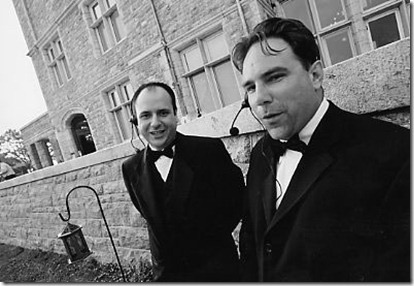A reader shared this with me:
____________________________
Our school district hired a new superintendent last year. One of the first things he did was declare that the first snow day would be the only real snow day of the year. Any further severe weather would be conducted as virtual school.
Not great, but at least kids would get one day to build snowmen and have snowball fights and all that.
Well, that first snow day produced no snow as the forecasted storm skirted our area. It was a huge disappointment, especially knowing that when it did actually snow, the kids would be stuck inside on their screens for virtual school.
The superintendent responded by gathering with a few kindergartners to help him make a video explaining to them that he made a mistake, that he was sorry, and that we all make mistakes sometimes. He let them jokingly scold him and promised a real snow day the next time we got a storm.
Then he sent the video to everyone in the district.
As I watched the superintendent admit his error to the children, I rejoiced inside.
A leader willing to own up to his errors? To change his plans when it becomes clear they are unreasonable or unfair?
Hooray for that.
____________________________
This story really shouldn’t be special, but today, lots of people in leadership positions see apologies as a sign of weakness.
Others suffer from fragile egos and can’t handle the prospect of admitting fault and being seen as less-than-perfect or possibly flawed.
Others are simply self-serving, narcissistic monsters.
Some might be all three.
Whatever the reason for their unwillingness to apologize, these are weak, fragile, and stupid human beings because the ability to apologize is and has always been a signal of strength, confidence, empathy, and skill. Leaders who admit errors and take the necessary actions to correct them are the kinds of people we want and need in leadership positions. They create environments where people feel safe to make mistakes, report errors, be themselves, and strive to improve.
They tend to be very good people who treat others fairly.
I know a leader who made a terrible, thoughtless mistake that harmed an employee. Worried about his error and the possible ramifications of his mistake, he called his boss to report the error and ask for guidance.
But he never admitted fault or apologized to the employee. Never acknowledged the mistake to the person who was hurt by his decision. Pretended like it never happened.
I also happen to know that there were no possible legal repercussions for admitting his mistake. No one – including his boss – was stopping him from saying he was sorry. He was just too weak, too pathetic, and too stupid to do so.
Of course, the employee (and I) quickly found out about all of this because nothing is ever as confidential as you think.
Naturally, this just made it worse.
This man was willing to acknowledge his mistake to his boss, but he couldn’t bring himself to do the same with the victim of his terrible, thoughtless decision. He shouldn’t be in a leadership position. He lacks the character, moral clarity, and strength required to lead others successfully.
Saying “I’m sorry” or “I was wrong” or “I apologize for my error in judgment” should not be hard.
In fact, it’s not hard at all. Not for confident, skilled, effective leaders. Not for the kinds of people who we want leading our organizations.
We need more of these kinds of people in this world. A lot more.
Or perhaps just fewer of the weaseling, cowering, useless monsters who somehow seem to find their way to the top.









